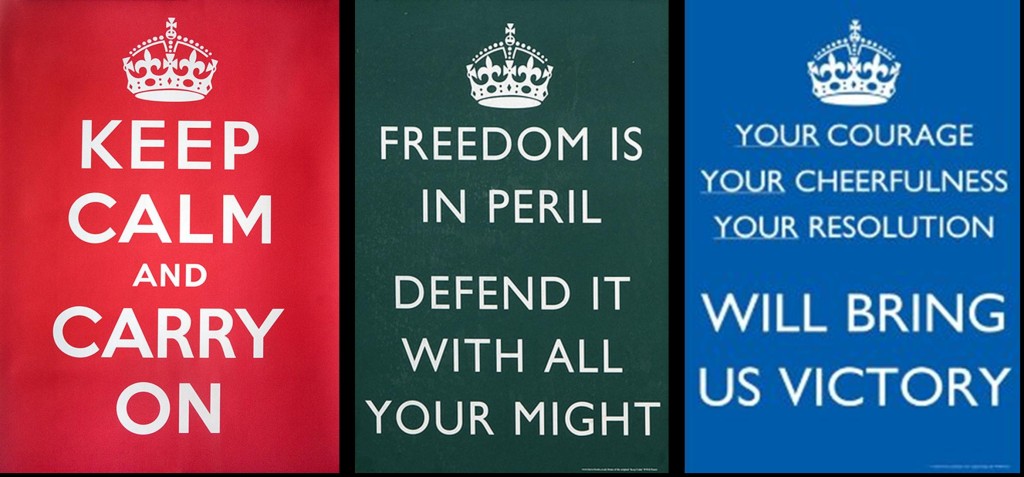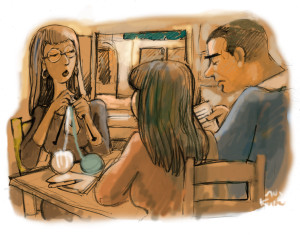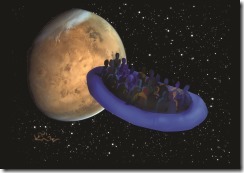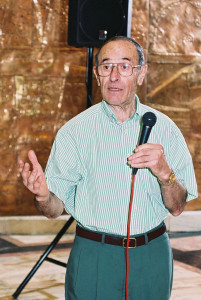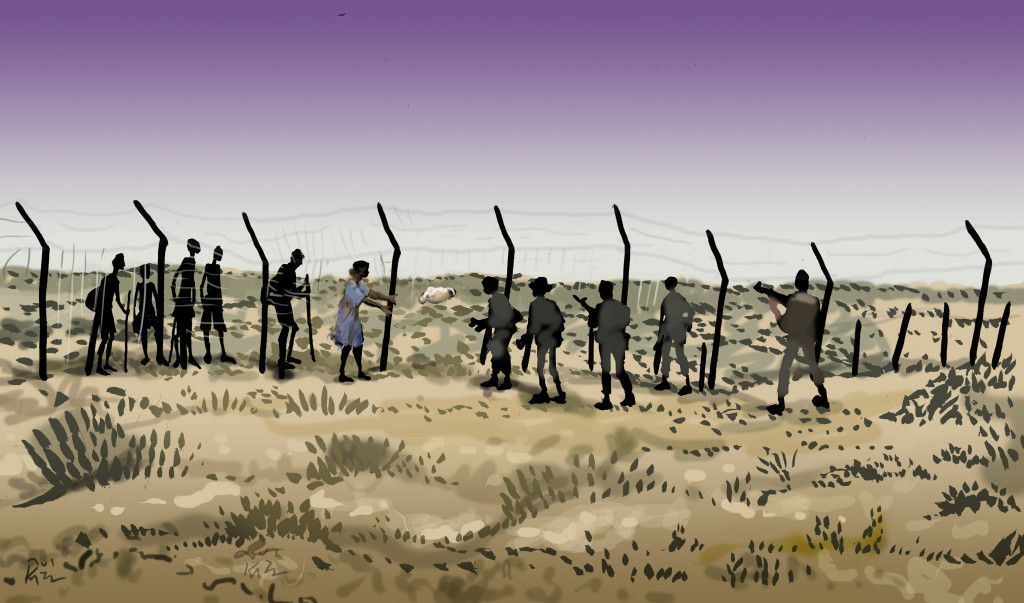Gershom Gorenberg
My new column (with some inspiration from Marx and Levinas) is up at Hadassah Magazine:
I was not just stir-crazy but screen-crazy. I was working on two computer screens—my laptop’s and the big one on my desk—and had my Kindle on my left and a document open on my tablet on my right, which made four screens, except when one of my kids texted me, when the phone made five.
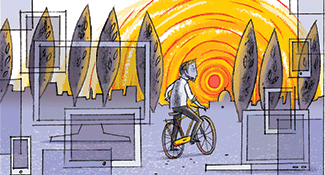
- Illustration by Christiane Grauert.
I got on my bike. It was late afternoon, with a light Jerusalem breeze blowing. I rode along the promenade that overlooks the Old City, up to where it narrows into a path between tall evergreens, and found a stone bench where I could see the golden Dome of the Rock between the branches. I often come to the same spot on Shabbat, on walks with my wife.
Relief. I inhaled the scent of the woods and thanked God for green.
Then I pulled my phone off my belt. The motion felt like an involuntary twitch of my hand. Anyone watching might have thought that I was checking a news site, but I knew that the screen came first; the choice of what to tap came after. I realized what I had done, looked at the rectangle of glass and plastic and stuck it back on the belt clip.
I thought, “This does not happen to me when I come here on Shabbat.”
I don’t use screens on Shabbat.
It has been such a short time since screens were bulky boxes that we only used at our desks. Then they got smaller and lighter. It is so convenient to be able to take a laptop anywhere—look at me! I can answer my boss while sitting on the porch—especially when the laptop shrank into a tablet and a phone.
Read more
